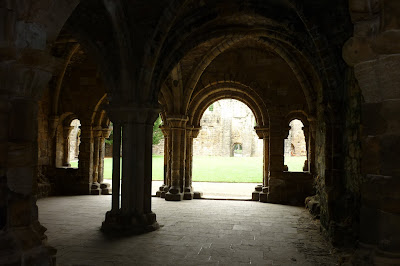
While scrabbling around the – mostly unedifying – debate about education in England it came to me that the problem really comes down to a fundamental disagreement about the idea of choice. Indeed this relates to several debates – health, social care, local government, housing. Put simply (and, I admit, perhaps just a little unfairly) the left sees choice as a problem whereas the right see choice as a solution. And the more complicated the particular service the less value our left-wing friends see in providing choice. Here’s the doyenne of wealthy left-wing commenters on education:
The intention is clearly to reintroduce the hierarchies with a vengeance, setting school against school, parent against parent and child against child.
The curse of choice – give parents a real choice (including the chance to join with other parents and teachers to set up their own school) and, says Ms Millar, chaos will ensue.
Why can’t parents just send their children to the “local school” and be done with it, these people say (secure in the knowledge that their local school in whichever leafy suburb the reside is a top performing school – or they can afford the cash for top up lessons to make up for any shortcomings at the school).
That option simply isn’t there for poorer parents – their local school isn’t like that, it’s dreadful, filled with out-of-control children and with teachers who’ve become so brow-beaten that they see getting through the day without being assaulted as something of a victory. And any children who may just want to actually learn something – get on in life, give themselves a chance – struggle. And too often fail.
The problem is that the left think that choice is too tricky an idea – that poor people aren’t able to decide which school is the best for their children. Allocations should be just that – a process whereby the state tells parents where their children will go to school. All this is justified by saying that choice, competition and variety are ‘unfair’ and will “set parents against parent”. Funny how we don’t see that in parts of society where there is real choice!
For me, the saddest thing in all this is that choice really will better advantage poorer families. There will still be unfairness and inequality – but we’ve got that squared in our current system – but as Mark Lehain from Bedford Free School observed:
That option simply isn’t there for poorer parents – their local school isn’t like that, it’s dreadful, filled with out-of-control children and with teachers who’ve become so brow-beaten that they see getting through the day without being assaulted as something of a victory. And any children who may just want to actually learn something – get on in life, give themselves a chance – struggle. And too often fail.
The problem is that the left think that choice is too tricky an idea – that poor people aren’t able to decide which school is the best for their children. Allocations should be just that – a process whereby the state tells parents where their children will go to school. All this is justified by saying that choice, competition and variety are ‘unfair’ and will “set parents against parent”. Funny how we don’t see that in parts of society where there is real choice!
For me, the saddest thing in all this is that choice really will better advantage poorer families. There will still be unfairness and inequality – but we’ve got that squared in our current system – but as Mark Lehain from Bedford Free School observed:
The team I'm heading consists of educationists from a variety of backgrounds, with a range of different philosophies and beliefs. What we have in common is a sense that the existing system is failing too many children, and that if it isn't working after 60 years, it is unlikely to start doing so now. A fresh approach really is needed.
Only 70% of students who live in the area where we will set up – Kempston – attend the local upper school, and of those who do, this summer only 31% managed to get five good GCSEs including English and maths.
Other schools in our town are doing better – although in Bedford itself, only 42% of 16-year-olds this summer achieved the same measure.
Look at those numbers – that’s the story in a place that’s far from the most deprived in England – and say again that a few adjustments to our current system will serve children well? There has to be dramatic and substantial change - more of the same simply won't do.
....
1 comment:
Of course choice is bad. It implies the sorting of sheep and goats which the right love so much - only when there is no choice will all services be good.
The only argument against this is greed and selfishness - the creed of the right
Post a Comment